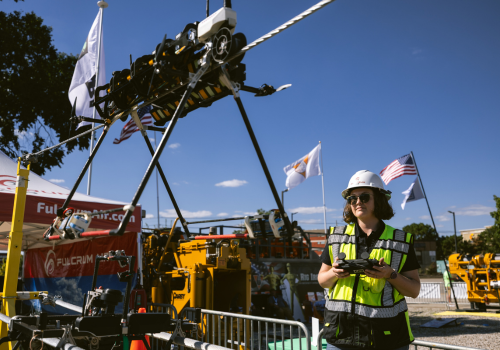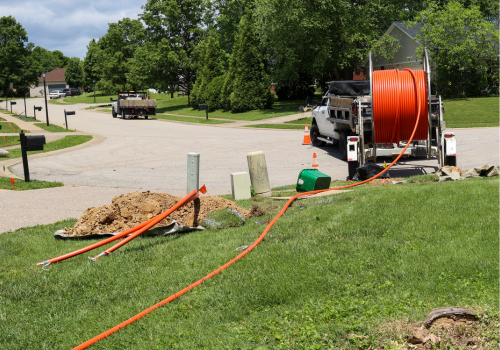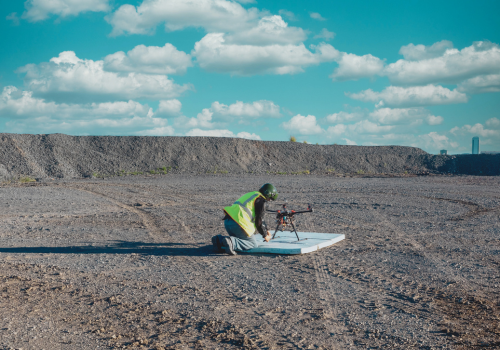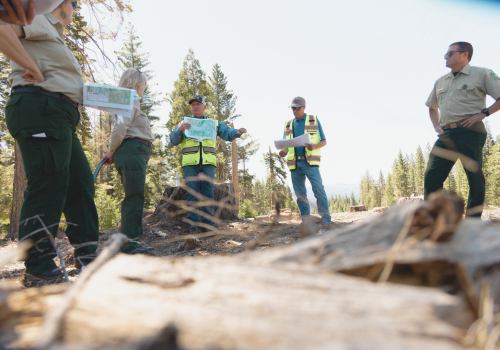There's no doubt that utility workers who are exposed to traumatic incidents on the job, such as natural disasters, storm damage or accidents can be impacted mentally.
Understanding the impact of work-related stress on utility workers
“I am intimately aware of what our crews deal with day in and day out,” says Cory Hanks, Distribution Support Manager for Alabama Power’s Southern Division Power Delivery team. “It is not an easy job. They are in the elements. When you are working with electricity, you have to be on your game. Our crews must stay focused while following all safety rules and best work practices to complete the restoration efforts safely.”
According to Hanks, when restoring power, crews must deal with a full range of emotions from customers. “Initially they are anxious to know when their lights will be back on, but as outage durations increase, they can become unsettled. However, once the lights come back on, there is elation and relief.”
“While we are saddened by the damage we see, we also find it rewarding to help restore some sense of normalcy back to the community,” says Britt Clayton and Nic Porter, members of Alabama Power’s Southern Division Roving Crew.
Alabama Power’s roving crew members say stress levels vary with the situation and conditions. One of the worst situations they faced was restoring power to the Beauregard community near Auburn, Alabama, after tornadoes devastated the area in 2019. The storms killed 29 people.
Similarly, workers in the oil and gas industry face their own set of dangers: fire and explosions from flammable gasses, vapors and hydrogen sulfide. Water utility workers may be exposed to water treatment plant hazards such as sewage and chemicals. And while some utility workers need to make repairs at heights, others can find themselves working in confined spaces.
Research continues to document the effects of work-related stress on employees. Lyra’s State of Workforce Mental Health Report found that in 2023, 65% of workers reported that their mental health affected their ability to do their job, up from 60% in 2022. Employees say their mental health challenges make them feel less focused (46%), less engaged (42%) and less productive (36%).
Solutions to reduce work-related stress
Dr. George S. Everly, Professor at the John Hopkins Bloomberg School of Public Health, developed the Johns Hopkins' RAPID Psychological First Aid, a technique designed to reduce the occurrence of post-traumatic stress disorder. According to Everly, disaster response work can cause compassion fatigue, of which there are two types: burnout and vicarious trauma. “Burnout signs can had be hard to recognize because they creep up on you,” says Everly. Symptoms include cynicism, exhaustion, loss of interest in the job, procrastination, calling in late and calling out when you are not feeling up to it.” Vicarious trauma occurs after deployment, and symptoms include not being able to get images off your mind. It can feel as if the trauma of the people you are helping is happening to you or the people you love.
Everly defines Psychological First Aid (PFA) as a supportive and compassionate presence designed to
1. Prevent stress from worsening
2. Mitigate acute stress and
3. Facilitate access to continued supportive care.
“What I care about is recognizing when people are doing well, and when they're not doing well,” he says.
Everly has worked with Navy Seals, SWAT team members, law enforcement agencies and commercial clients to educate managers and workers on the step-by-step. “The people who are the top psychological and physical performers, know their limitations,” says Everly. He views psychological first aid as a jump-start for mental health. “Resilience is best when it comes from within, but sometimes people need a little help getting started and that's what psychological first aid is,” says Everly.
Instead of directing individuals to professional counselors, Everly advocates for peer-to-peer counseling which doesn’t have the same stigma of seeing a mental health professional. In March 2022, President Biden announced a strategy to connect more Americans to care in part by accelerating the universal adoption, recognition, and integration of the peer mental health workforce across all elements of the healthcare system. The Substance Abuse and Mental Health Services Administration (SAMHSA) released the National Model Standards for Peer Support Certification in April 2023. The new standards are designed to improve consistency across peer certifications and promote quality of the growing number of peer workers across the nation.
Everly believes there is a lot of training employers can offer to improve the mental resiliency of its workers, such as classes on Psychological Body Armor. “In these classes we use the most advanced science-based techniques to teach people strategies to build mental resilience through physical exercise, nutrition, rest and recovery and intrapersonal support.”
What utility workers can do to protect their own mental health
Substance Abuse and Mental Health Services Administration (SAMSHA) advises disaster responders to become more aware of their work stress by participating in stress debriefings or stress management exercises. Alabama Power Roving Crew members stress the importance of rest, good accommodations (food and lodging) and staying connected with family through technology. SAMSHA recommends workers understand their personal signs of stress and let their co-workers know them as well. During off-time, workers should mentally disconnect as much as possible.
What employers can do to support the mental health of workers
Employers play an important role in supporting the mental health of workers. They can ensure workers are well trained for emergency situations through exercises and training, and provide support for emergency workers in the field. Hanks handles this duty for Alabama Power in the central part of the state and his efforts are appreciated by the roving crew. “It makes a huge difference to know we have support from our management team and that members of our team are looking out for each other,” says Steve Keel, Roving Crew Foreman.
Alabama Power offers mental health and wellbeing resources for physical, financial, social and emotional support. In addition to a number of tools and resources, employees have access to counseling through the company’s LifeSource Employee Assistance Program (EAP) and critical incident and crisis support that ranges from in person to online tools to help them when and where they need it most.
According to Everly, employers increasingly recognize that mental health impacts performance. “The pendulum has swung in terms of recognition of the problem,” says Everly. “Where we are not as successful is recognition of the solution.”
For more resources to navigate trauma in the utility industry, see the links below:
The John Hopkins Guide to Psychological First Aid
Psychological Body Armor Training
SAMSA First Responders and Disaster Responders Resource Portal
Subscribe to The Utility Expo monthly newsletter to receive more industry insights like this.
Read Next
The Impact of Stress on a Utility Worker, and How to Manage the Stress












